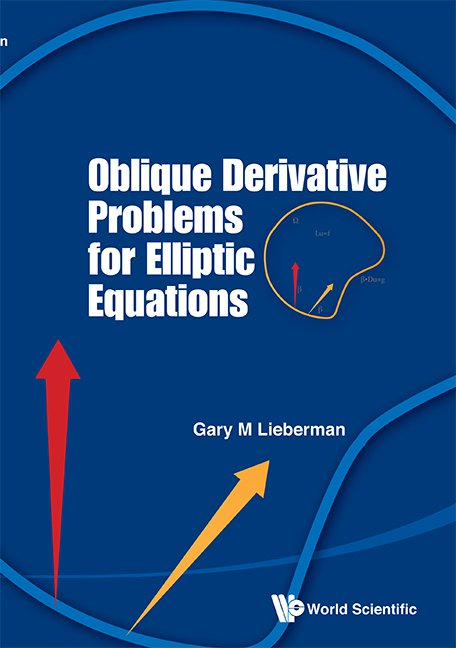System Upgrade on Tue, May 28th, 2024 at 2am (EDT)
Existing users will be able to log into the site and access content. However, E-commerce and registration of new users may not be available for up to 12 hours.For online purchase, please visit us again. Contact us at customercare@wspc.com for any enquiries.
This book gives an up-to-date exposition on the theory of oblique derivative problems for elliptic equations. The modern analysis of shock reflection was made possible by the theory of oblique derivative problems developed by the author. Such problems also arise in many other physical situations such as the shape of a capillary surface and problems of optimal transportation. The author begins the book with basic results for linear oblique derivative problems and work through the theory for quasilinear and nonlinear problems. The final chapter discusses some of the applications. In addition, notes to each chapter give a history of the topics in that chapter and suggestions for further reading.
Sample Chapter(s)
Chapter 1: Pointwise Estimates (343 KB)
Contents:
- Pointwise Estimates
- Classical Schauder Theory from a Modern Perspective
- The Miller Barrier and Some Supersolutions for Oblique Derivative Problems
- Hölder Estimates for First and Second Derivatives
- Weak Solutions
- Strong Solutions
- Viscosity Solutions of Oblique Derivative Problems
- Pointwise Bounds for Solutions of Problems with Quasilinear Equations
- Gradient Estimates for General Form Oblique Derivative Problems
- Gradient Estimates for the Conormal Derivative Problems
- Higher Order Estimates and Existence of Solutions for Quasilinear Oblique Derivative Problems
- Oblique Derivative Problems for Fully Nonlinear Elliptic Equations
Readership: For the professional researcher in mathematics.























